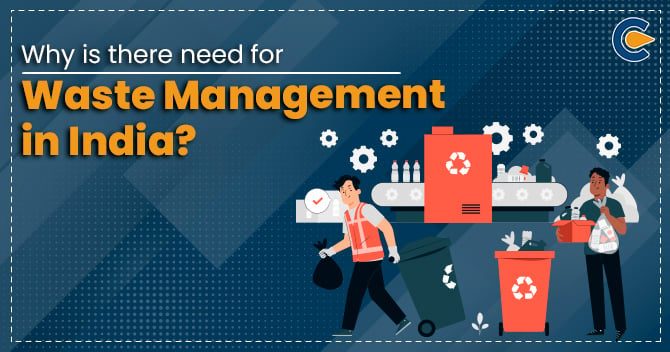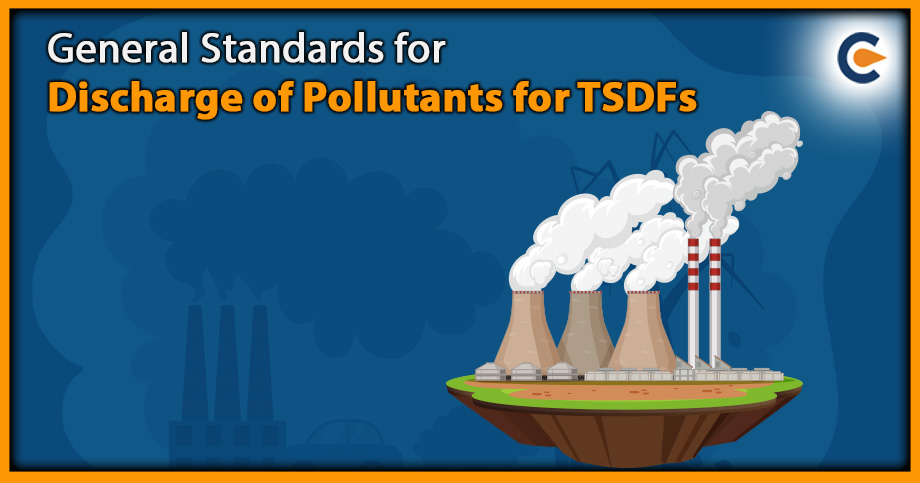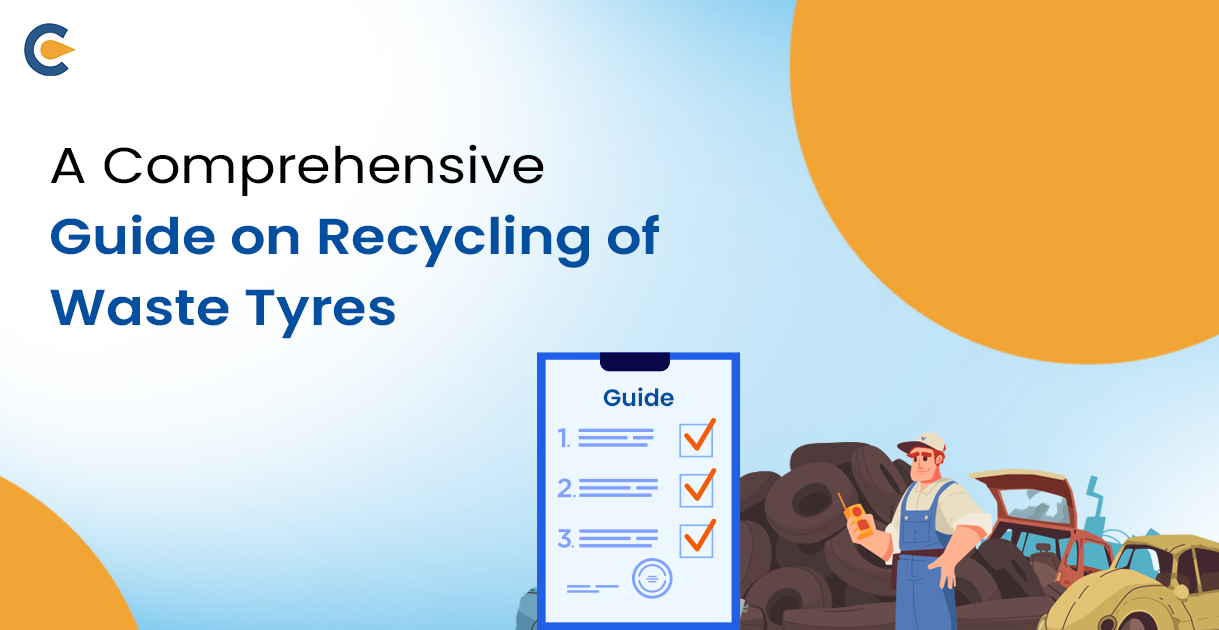In India, each year, approximately 62 million tonnes of Waste, including Plastic Waste, E-Waste and medical Waste, is generated, making it an enormous challenge for the central authorities to deal with the mount up Waste all by themselves. This increasing pile of Waste not only hinders the overall development of the nation but also affects the health of the people living in India.
This rapid increase in accumulated Waste is majorly due to the rising of Industries, the Shifting of the population from rural to urban areas, an increase in buying power of people and cheap technology. This has led to the immediate requirement for proper waste management in India, where not only the state is held liable, but the responsibility lies on every stakeholder, including producers’, Importers, Brand owners and consumers.
Increasing Accumulation of Waste
The population in India is increasing day by day, with the approximate total population being 1.3 billion. This has resulted increased need for food, water and other amenities, as well as the rapid growth of the Economy in India from 1.18 billion in 1970 to 7 billion in 2015, with the expected rise of about 14.2 billion by 2030. The rise in the economy has also led to an increase in buying power of people and an influx of new products in the market, ultimately resulting in the increase of the dumped Waste.
It is estimated that India’s urban area generates approximately 55 million tonnes of municipal solid waste annually; these numbers are expected to rise more from 165 million tonnes by 2030 to 436 million tonnes by 2050 with the shift of the maximum population to urban areas. This increasing pile of the dump has led to many health and environmental issues that need to be addressed immediately.
Health and Environmental impact due to increasing Waste
The rapid modernization leading to an increase in Waste is associated with many problems, including health degradation and environmental pollution. With the majority of waste being dumped in landfills and not managed properly, the health problems among people are also increasing with organic Waste leading to the creation of pathogens leading to infections and chronic diseases, to hazardous Waste exposing people to toxic chemicals leading to chemical poisoning.
Apart from health issues, the mount up Waste also creates various environmental problems, especially in relation to landfills where even the small children being, the most vulnerable population, are playing and living. It is estimated that around 90% of the Waste is either openly dumped in landfills or burned.
Because of the release of methane and other harmful gases, these landfills have resulted in massive files affecting the biodiversity of the whole area. In India, in April, only three fires broke in Delhi, with the first two in Ghazipur dumpsite in East Delhi and Dumpsite in Bhalswa in North Delhi, which lasted for over 72 hours and became very difficult to manage due to the sheer size of dump waste and lack of proper regulation. These consecutive incidents have woken the eyes of the authorities as well as people regarding establishing a proper waste management system in India.
Need for Circular Economy
With the increased realization among people and states of the importance of sustainable growth and waste management in India, the Government of India has started directing toward a circular economy. This type of economy is based on the constant use of resources while taking a broad view of the process, products and waste management in India[1].
It is calculated as per the statistics that the circular economy adopted by the Government of India could result in annual benefits of 40 lakh crore in 2050 with a significant reduction in greenhouse gases by 44%.
The circular economy aims to urge consumers to reuse the material as well as urge producers to extend the service life of the products which are hazardous to the environment, including Electrical and Electronic equipment, Plastics etc. But for proper implementation of circular economy in the market, there is a need for authorities like The Ministry of Environment, Forest and climate change and Central Pollution Control Board to promote the idea of circular economy among the consumers and producers and educate them on the same. They also have to make sure that the extended producers’ responsibility is properly implemented by the Producers’/Importers, and Brand Owners and grant heavy penalties in case of non-Compliance.
Waste Management in India
Waste is basically any material or product that has outlived its usage and is no longer needed by the producer, owner, consumer or processor. It is anything/product or material that does not create any value if looked at in a business sense; it is anything/product or material which does not create any value. Whereas we go by the definition of Waste scientifically, there is no material which is Waste as every product has the potential to be reused and recycled.
Because of its sources and compositions, Waste can be classified into many categories:-
- E-Waste: – Nowadays, E-Waste is the most discussed type of Waste due to the increased usage of technology, leading to more Waste and ultimately leading to more health impacts. These Wastes include discarded electrical and electronic equipment like computers, laptops, mobile phones etc.
- Solid Waste: – these include vegetable waste, household waste, kitchen waste etc.
- Metal waste: – includes unused metal scraps or sheets etc.
- Plastic Waste: – Plastic Waste is the most hazardous, difficult to control and manage Waste which includes most of the things in our daily lives such as plastic bags, buckets, bottles etc.
- Liquid Waste: – It includes water utilized by different manufacturing units, industries, tanneries, power plants etc.
- Nuclear Waste: – Nuclear Waste is the most toxic waste, including waste from the nuclear power plant.
With this many classifications of Waste many times, mere disposal of Waste is confused as management of Waste which is totally wrong. Simply dumping the Waste in the secluded area outside of the site does not solve the problem of Waste but creates more issues leading to pollution of soil, water, air, health hazards, loss of precious resources, etc., whereas, on the other hand, management of Waste lead to a significant reduction in Waste as well as the increased life span of the products.
Waste Management in India generally involves the method of proper segregation and environmentally sound recycling of all the equipment. Apart from these, there are other the techniques of waste management, including:-
- Proper Collection
- Transport
- Processing
- Treatment
- Disposal of Waste
The market for waste management is divided into four sectors, namely:-
- Industrial Waste
- Bio-Medical Waste
- Municipal Waste
- Electronic Waste Market
All these markets are governed by different waste management laws in India, which regulate the method of waste generation, primary collection, primary storage, recycling activity, secondary collection and transport, and recycling and disposal. This also includes the scheme of Extended Producers’ Responsibility, where the producers are held liable for properly managing and handling the waste generated due to their products or during the manufacturing process. EPR is a part of sustainable business practice that also penalize producers with imprisonment and fine in case of non-compliance with extended producers’ responsibility.
For compliance with these laws, there are many stakeholders present, including: –
- Public Sector: This includes the government authorities and local public departments at the state and city level.
- Private formal Sector: private formal Sector include registered and authorized units involved in the collection, transport, treatment, and disposal and recycling.
- Private-informal Sector: this Sector comprises of waste pickers, traders, and non-authorized-authorized small scale units.
- Representatives of the community in the form of NGOs, etc.
Apart from laws, there are many initiatives of the Indian Government, including the Urban Infrastructure Development Scheme for Small & Medium Towns (UIDSSMT), Jawaharlal Nehru National Urban Renewal Mission (JNNURM), and at the international level, we have sustainable development goals.
Conclusion
Waste management in India calls for an integrated waste management scheme that focuses on reducing and managing all types of Waste while also affecting the practice of Consumerism, which seems to be increasing not only in developed nations but also in developing countries. The consumers can also take part in the process of waste management by inculcating the habit of reducing and reusing, which not only have environmental benefits but are also economically sound in the environment of inflation. At last, the technologies need to upgrade so that they have more life and are environmentally sound.
Read our Article:Essential E-Waste recycling business investment requirement











